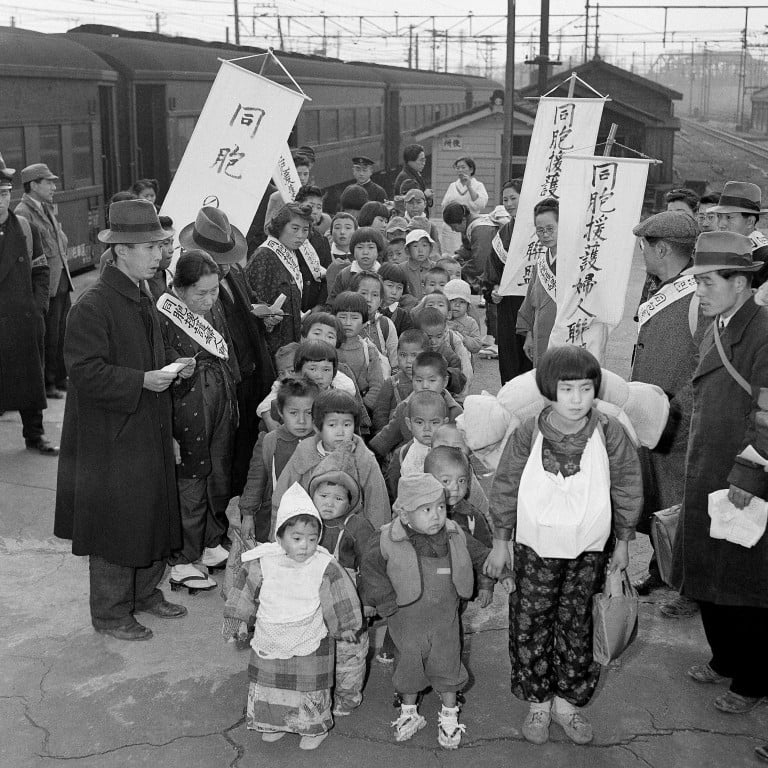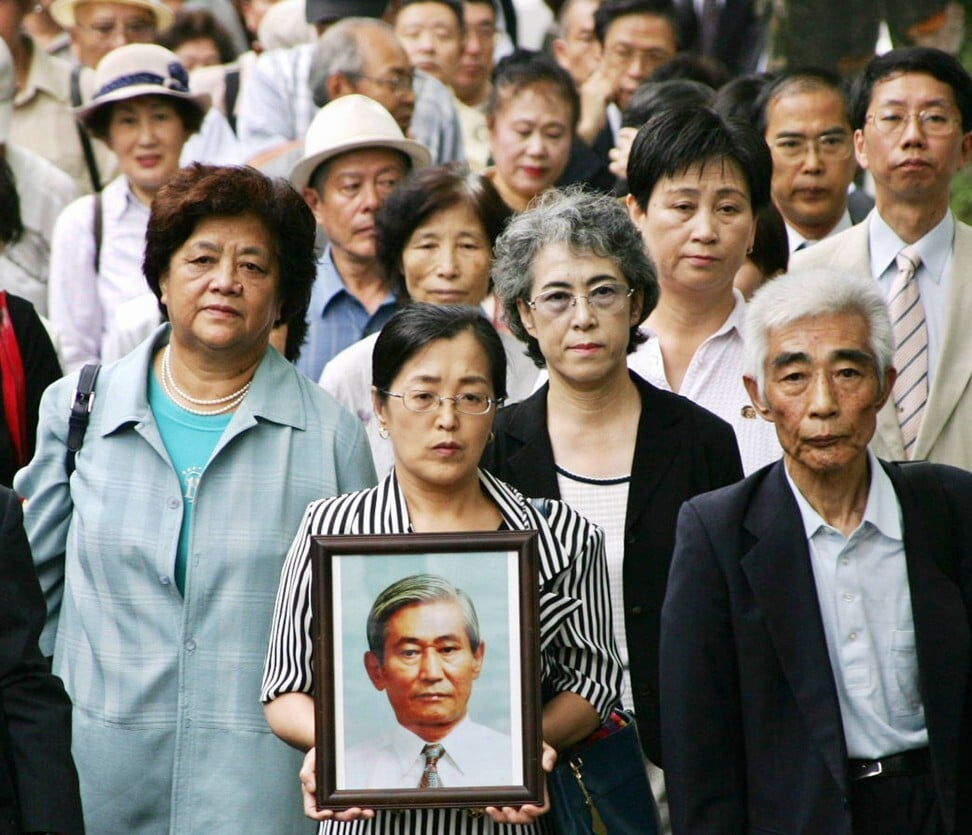
Bittersweet memories for Japanese war orphans after ‘last Chinese foster mother’ dies
- In the final days of World War II, thousands of Japanese families fleeing Manchukuo in northeast China entrusted their children to locals
- One of the last Chinese foster mothers, who had spent years living in a special facility for such families, died last week aged 98
“These mothers raised us as their own children,” he said. “They kept us safe.”
Explained: the legacy of war in Asia
Cui Zhirong, one of the last known surviving Chinese foster mothers to Japanese war orphans, died last week aged 98 in Changchun, Jilin Province. The news of Cui’s death revived Miyazaki’s memories of his own experiences.
“This is very sad news indeed,” he said. “I never met Cui but I know the hardships many of these families faced in the years after the war.”
It is unclear how many people died during the retreat to port cities in the hope of boarding a ship back to Japan but thousands of families, fearing they would not survive, decided instead to entrust their young children to Chinese families.
An estimated 6,000 people returned to Japan after it normalised diplomatic ties with Beijing in 1972. Of those, 2,500 were under the age of 12 when left behind. Japan has to date recognised 2,818 war orphans.

In 1990, a Japanese businessman who managed to escape Tokyo with his family in 1945 provided funds to build the China-Japan Friendship Apartments in Changchun. The building at one time housed 30 families who had taken in Japanese war orphans and was the country’s only such facility. Cui was the last foster mother living in the flats.
In the final days of the war, Cui adopted a three-year-old Japanese orphan as her eldest daughter. In 1983, the Japanese government programme was able to confirm through blood tests that the woman was the child of a man living in Kawasaki. After being recognised as a war orphan and qualifying for financial support from the government, the woman moved back to Japan.
“I did not have any hostility towards Japanese people,” Cui said at the time. “I considered her to be my daughter and I raised her.”
Brutality and hardships of Japanese internment camp brought to life in British national’s diary
Miyazaki returned to Japan in 1997 under a government repatriation programme and now lives in Tokyo. The government has also attempted to connect war orphans with families who returned to Japan but Miyazaki had no success.
Miyazaki married a Japanese woman, taking her name because he did not know his own. They have two children. He works for the China Returnees Friendship Association where he helps other war orphans move to Japan and hopefully find blood relatives.
“I was sad to leave my foster mother behind in China, but I’m happy to be in Japan now,” he said, with more than a hint of Chinese still audible in his Japanese speech. “But I do wish it would have been possible to trace my real family.”

